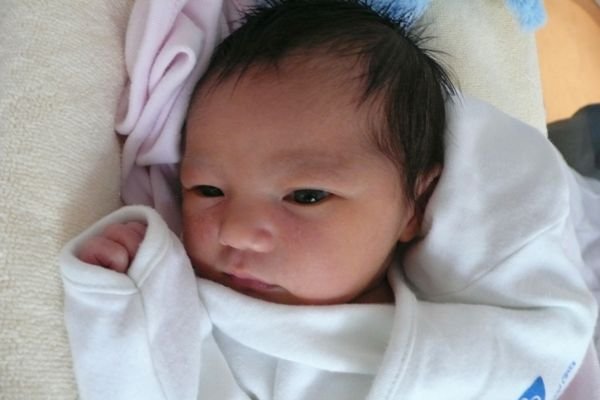
Dear Diary,
People who know the work I do, know that I've been fighting to get my children and the children I come across, citizenship.
Zara has waited 10 years. Khairy has waited 12.
Some people have waited 75 years.
Other never received their citizenship and they die, stateless.
On April the 2nd, the High Court with listen to 5 cases on Childhood Statelessness, argued by some of the best legal minds in the country.
I will be there again.
I am not a lawyer. But as a mother of stateless children and as a child activist, the day will determine what happens to many of the 297,000 stateless children in Malaysia.
I have flashbacks while we I wait, thinking of the child sleeping next to me.
I think of the newspaper articles I agreed to do, the letters I wrote, the research papers I helped draft and this brief, many people helped write. I pulled lawyers from abroad to help lawyers here, as we prepare to debrief the Prime Minister. We handed this to him the end of last year. I had 10 minutes to present to him.

The Brief:
STATELESS CHILDREN ADOPTED BY MALAYSIAN PARENTS MUST BE GRANTED CITIZENSHIP
Background
Children are or become stateless for a variety of reasons: one of which is that they are born stateless in Malaysia, either because their parents are themselves stateless, or they are born out of wedlock, or because their parents are not known (foundlings, babies abandoned at birth). The exact number of children born stateless in Malaysia is not known.
Stateless children are in a particularly vulnerable position and are at serious risk of suffering abuse, neglect and violence through, among other things:
▪ Lack of healthcare ~ denied access to basic public healthcare
▪ Lack of education ~ denied access to public education
▪ Increased social and financial marginalization
▪ Social isolation
▪ Exploitation – commercial, social and sexual (e.g. prostitution, hazardous labour)
▪ Trafficking and/or sale of children
▪ Juvenile crime (including gang-related activities)
▪ Vagrancy;
▪ Potential for long term drug and alcohol abuse
Protecting children
While the Government of Malaysia has shown tremendous commitment towards ensuring the protection of children in Malaysia, stateless children remain a sizeable category of children who are not afforded adequate protection. By being stateless, these children who are born in Malaysia cannot be said to be citizens of any other country and it is important that Malaysia – the country of their birth – gives them protection and the opportunity to reach their full potential.
The United Nations’ Conventions state that effective laws on nationality and universal birth registration are the first steps towards resolving the problem of statelessness. Malaysia however is not a signatory to any of the UN Conventions relating to statelessness.
Citizenship through Adoption
The issue of statelessness may raise complexities, but we should not deny children protection and the right to reach their full potential because of these complexities. As required by Malaysia’s accession to the Convention on the Rights of the Child, and the Child Act 2001, the ‘best interest’ of the child must be our paramount consideration.
The opportunity to grow up in a family unit, with full access to basic healthcare and education, must certainly be seen to be in the best interest of a child. Thus, stateless children born in Malaysia who are adopted into Malaysian families should be granted citizenship, if not automatically, then within a reasonable time-frame.
The Law
Article 14(b) of the Federal Constitution, read with Part II Second Schedule 1(e), provides for citizenship by operation of law: “every person born on or after Malaysia Day”, …and… “is not born a citizen of any country…” are citizens by operation of law.
Section 9 of the Adoption Act 1952 states that “all rights, duties, obligations and liabilities shall vest in and be exercisable by and enforceable against the applicants (i.e. adopting parents) as though the child was a child born to them in lawful wedlock.”
The rights, duties, obligations and liabilities of the adoptive parents are further strengthened in other legislation e.g. Inheritance Act 1971 where ““son” and “daughter” respectively, include a male or female child adopted by the deceased under the provisions of any written law relating to the adoption of children”.
Adoption by way of the Adoption Act 1952, which adoption by way of court order, is only available to non-Muslims. Muslim adoptive parents may only adopt by way of the Registration of Adoption Act 1952, which does not have a provision similar to section 9 above.
- Note: Sabah and Sarawak have their own respective Ordinances.
Issues
Despite there being a clear legal framework and constitutional right for the acquisition of Malaysian nationality of children who would otherwise be stateless, there are significant challenges with implementation. These include:
a) Adoption provisions for Muslim adoptive parents are more restrictive, undermining the right of adoptive parents to transfer their nationality to their adopted childred;
b) There is no clear process or procedure (e.g. adopting parents are often required – without any prior notice - to attend at a JKM office, after 2 years of bonding with the child, with the biological mother – often cannot be found after 2 years, or is reluctant to come forward);
c) Having gone through the process of adopting a child under the relevant legislation, adoptive parents remain uncertain that a stateless child adopted by them will be able to obtain citizenship. Often they are required to submit applications under Article 15A of the Federal Constitution, repeatedly, only to face rejection sometimes up to 2 years’ later upon the discretion of the Minister. Sometimes, parents do not receive an explanation as to why the application was rejected. Finally, they have to apply to the court for a declaration, which is not only costly, but time-consuming and wholly detrimental to the best interests of the child.
d) Despite providing a clear legal basis for nationality, Article 14(b) of the Federal Constitution remains largely unimplemented. This has a significantly detrimental impact on the adoptive child and on the entire family.
Conclusion
While the Federal Constitution provides significant safeguards against statelessness, there are also gaps in implementation. This has a profound effect on foundlings who do not acquire nationality automatically as the decision on granting citizenship ultimately rests with the Home Minister.
Our recommendations for all adopted children
Review and amend current adoption laws, particularly with regard to strengthening the review process for potential adoptive parents and standardizing the process generally. Consideration should also be given to shortening the two year waiting period for Muslim adoptions.
Ratify or accede Convention on the Protection of Children and Co-Operation in Respect of Inter-Country Adoption, and in the process of doing so, harmonize adoption laws and procedures to be in line with the standards required by the Convention. This will help simplify the adoption process for prospective parents to adopt refugee children and also make adoption of Malaysian children by overseas parents a more viable option.
Ensure that children’s shelters and homes are monitored according to international best practices
Ensure JKM and JPN officers receive all necessary training and resources to investigate and facilitate adoptions, and in particular, to ensure that the best interests of the child are protected.
Our recommendations for all stateless children adopted by Malaysian parents
- The full implementation of Article 14(b) of the Federal Constitution, to ensure that all otherwise stateless children who are born in Malaysia, acquire Malaysian citizenship
- In keeping with the constitutional right of the child to Malaysian citizenship and the right of the adoptive Malaysian parent to transfer citizenship to their adoptive child, any child lawfully adopted by at least one Malaysian parent should be recognised as a Malaysian citizen.
- All procedures related to the acquisition of nationality of adoptive children should be simplified and expedited, in line with Constitutional principles and the best interests of the child.
- As part of the adoption process, in order to protect the best interest of the child, the NRD should be prepared to accept sworn statements and other evidence from the child and the relatives on the child’s birth in Malaysia and whether foreign citizenship was indeed obtained within a year after birth, with the burden being on the NRD to disprove such claims.
- The adoption acts should be reviewed so that the entire process and laws are streamlined, with necessary minor variations made to comply with syariah law, within the framework provided by the Constitution. The streamlined process should be made public and readily available at all JKM and NRD centres so that adopting parents are fully cognizant of the process and timelines should they wish to adopt.
- If citizenship is not granted automatically, adoptive children should be put on a path towards being granted citizenship within 12 months of the commencement of the adoption process. This should be sufficient time for the relevant government bodies to ascertain whether the child is a citizen of another country, and in the case of a child whose biological parents are unknown or cannot be located, to make efforts to locate the biological parents. Where no proof of other citizenship is obtained, or where the biological parents are not found, the child should be granted citizenship.
- Create a process to allow for international adoptions. Ratify the 1993 Hague Convention on Protection of Children and Cooperation in Respect of Intercountry Adoption.
I had waited 12 years to have those 10 minutes to present and speak hurriedly. The Prime Minister asked me a few questions and promised to get back to me.
So we wait and I wait.
This Wednesday, I'll be on the radio, on BFM 89.9 at 8am talking about the issue again.
My hands will be clammy, my heart will be racing again as I pray the voices of reason listen to us again.
I ask we all pray for the children.
Thanks for sharing. Reading this bring my understanding on stateless children to a higher level through your personal experience. And I admire your strong stand and never give up spirit! Tough lady! Salute! @tinizainudin
Downvoting a post can decrease pending rewards and make it less visible. Common reasons:
Submit
thank you so much, Melissa
Downvoting a post can decrease pending rewards and make it less visible. Common reasons:
Submit
OMG!! I am shock that this actually exist!! Never knew that these children will be stateless. This is absolutely unacceptable! Keep on fighting @tinizainudin and hope you will win the battle! May the Almighty give you strength to fight on and persevere and pray for these children!
Downvoting a post can decrease pending rewards and make it less visible. Common reasons:
Submit
Now only I know they term these children as stateless children. Supporting you all the way, tough strong momma!
Downvoting a post can decrease pending rewards and make it less visible. Common reasons:
Submit
Good job Tini. Wishing you all the best come this April! Will be praying for a positive outcome at the hearing!
Downvoting a post can decrease pending rewards and make it less visible. Common reasons:
Submit